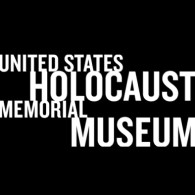
“The Politics of Jewish Aid Operations in Iran during World War II”
Professional Background
Kathrin Haurand is a PhD candidate in the Zvi Yavetz School of Historical Studies at Tel Aviv University. She received her BA and MA in cultural studies and cultural history at the European University Viadrina in Frankfurt (Oder), Germany and her MA in history from Clark University.
Kathrin has been involved in numerous education projects on antisemitism, racism, and Holocaust history. She helped create the oral history archive Forced Labor 1939-1945, Memory and History at the Free University in Berlin. She has organized workshops and developed curricula to teach the history of antisemitism and racism in German high schools, police academies, and other public offices as part of an education initiative financed by the German Federal Agency for Civic Education and the State of Berlin.
Ms. Haurand has published articles on the history of antisemitism, as well as on Jewish communities in the Middle and Near East during World War II. She has presented her research at numerous international venues, including the Center for Jewish Studies Heidelberg, the Center for Middle Eastern Studies at Harvard University, Fondation pour la Mémoire de la Shoah, the Fritz Bauer Institute, Humboldt University in Berlin, the University of London, Tel Aviv University, and Yad Vashem.
Ms. Haurand has been a research fellow at the Selma Stern Center for Jewish Studies in Berlin, where she is also a member of the research group on Jewish Diaspora Politics. She has received research fellowships from the Inter-University Program in Russian and Eastern European Studies and the Minerva Foundation, which have supported her research in Israeli archives.
Fellowship Research
Ms. Haurand’s research focuses on the organization of aid and rescue networks through Iran during World War II and traces the changes in Jewish diplomacy and humanitarianism through this time in the Middle East. During her fellowship, Ms. Haurand will investigate how Jewish organizations and Allied forces were involved in these aid and rescue efforts. She has collected numerous documents of aid organizations in Israel and the United States. During her research at the Museum, she will explore—among others—the records of the Polish government in exile, the World Jewish Congress, and numerous survivors’ testimonies. Her previous findings suggest that the development of Jewish aid during the war in Iran and the Middle East were indicative of larger trajectories in post-Holocaust Jewish humanitarianism and influenced Jewish politics in the Middle and Near East.
